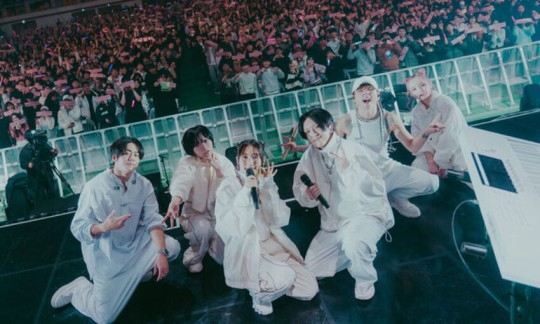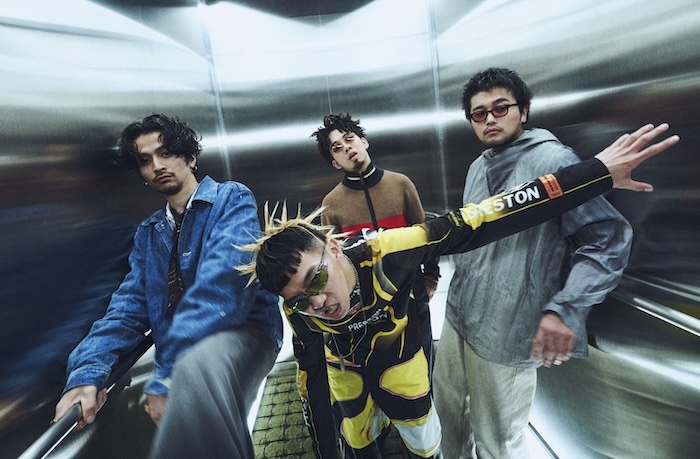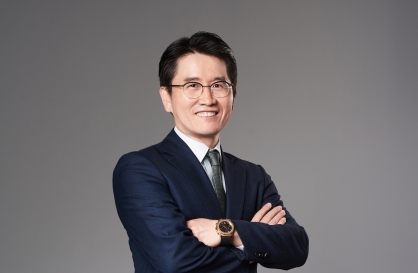What does J-pop revival mean for S. Korea?
J-pop provides alternatives to Korean listeners, satiating thirst for more diverse music
By Lee Jung-younPublished : Feb. 12, 2024 - 14:22

Choi Mi-yeon, a 25-year-old college student, recently purchased a ticket for Japanese band King Gnu's upcoming concert in Korea. Among her friends who attempted to buy tickets, she was the only one lucky enough to get a ticket for the concert, which is set to take place twice in April. All 6,000 tickets quickly sold out.
"It feels like more and more Japanese musicians are visiting Korea since last year, and it's getting really hard to get tickets. J-pop is certainly gaining strength," said Choi.
The struggle for tickets and a series of visits by J-pop musicians to the peninsula shows that Japanese music may once again be recovering its popularity that has waned since the explosion of K-pop.
In the 1980s and 1990s, legendary Japanese musicians such as X Japan, Southern All Stars, and Anzen Chitai were loved by many Korean listeners, although the government at the time banned the import of Japanese culture. In 2004, as Japanese music albums were finally allowed to be sold in Korea, concerns about Korean pop culture arose, but the situation reversed as K-pop's heyday started. The export of Korean music to the Japanese market steadily increased, reaching $277.29 million in 2016, which was about 100 times the import of Japanese music in Korea at the time, which stood at $2.91 million.
K-pop still stands strong, both in domestic and international markets, but J-pop has bounced back, proving its strength with concerts and songs appearing in the domestic music charts.
Yoasobi's first performance in Korea, held at Korea University's Hwajeong Gymnasium in December, evidenced the J-pop and J-culture craze in Korea. Originally, the duo was planned to perform for only one day, but an additional performance was scheduled due to the enthusiastic requests of fans. Tickets for both performances were sold out even before a minute had passed after the tickets were released. Audiences who filled the concert hall enjoyed the performance with all their hearts, singing along to Yoasobi's songs in Japanese.
One Ok Rock, a Japanese rock band, also performed in Korea in December for the first time in five years. The band 10-FEET, who is also famous for singing the theme song “Dai Zero Kan" of the movie "The First Slam Dunk," performed as a headliner at the Busan International Rock Festival in October.
As well as continuous relays of Japanese musicians visiting Korea, J-pop's presence is growing daily, even through the domestic music charts. "Night Dancer" by Imase, a young singer born in 2000, ranked second on the daily global music charts of Melon, one of the main Korean music streaming sites, in August 2022. The song also ranked 17th on Melon's Top 100 list. It is the highest record set by a J-pop song on Melon. Imase also joined the fan community platform Weverse, which is operated by Hybe.
Other Japanese musicians are also visiting Korea this year. Ado, who collaborated with Le Sserafim and sang the theme song for the film “One Piece Film Red,” will hold her first solo concert in Korea in February. King Gnu, who is coming to Korea in April, extended its concert to a two-day schedule, while singer-songwriter Eve, who sang the opening song for the world-popular animated film “Jujutsu Kaisen,” will perform in May.

Thirst for diversity
The active performances of Japanese artists, coupled with J-pop's entry into the domestic music charts, are a phenomenon driven by a public craving for more diverse music, listeners and critics said. The Korean music market does have distinct strengths, which have been proven by the global popularity of K-pop, but they noted it is still lacking in terms of diversity.
"I think the biggest asset of the Japanese music industry is the capital and culture that enables the preservation of artists’ diversity and uniqueness," said Jang Mi, an enthusiastic listener of J-pop. "I like philosophical, subjective lyrics that talk about deep emotions, but it seems like the Korean music market considers such music as less commercial, non-profitable. Musicians who produce such music don’t last long. I think that's the biggest difference from J-pop."
“There is a strong feeling that Korean singers and songs are nurtured through the guidance and training system of their agencies, but Japanese singers do not seem to involve their producers when they perform the music they want to do,” added Jang.
A woman in her 20s, who only gave her first name, Han, said that J-pop provides various options that are hard to find in Korean music charts. "I like band sound, and Japanese band music artists produce high-quality music. There are indeed some band musicians in Korea, but Japanese band (music) is more detailed and exquisite."
Some listeners say that the power of animation films also played a big role in the revival of J-pop.
One listener said that he became a fan of J-pop after he watched animated films. "Japanese animation has its unique sentiments and specialties, and they are good at utilizing the theme song that conveys the story and emotions of the films," said Lee Jae-young, an office worker in his 30s. "After watching animation-related videos and listening to many theme songs, YouTube and other music applications recommended more Japanese songs. I was fascinated by J-pop artists’ strong and unique colors."
Experts agree that J-pop has resolved the lack of diversity in the Korean music market. "Most of the spotlight goes to idol groups’ music, which is labeled as K-pop. Still, a significant number of younger people consume a lot of indie music, so-called non-mainstream music, through YouTube or other platforms. There is definitely demand for more diverse, deep musical options, but the Korean music market has not been able to meet that demand," said Jung Duk-hyun, a pop culture critic.
Kim, a college student who only gave her surname, said there is a lot to learn from the Japanese music market. "I've seen a lot of Koreans making fun of Japanese idol audition programs, pointing out the participants’ sloppy skills and imperfect appearances. Maybe it is true that Korea has achieved an unrivaled position in the idol-fostering industry. But when you hear the new music of Japanese singer-songwriters, and bands, which is full of experimental endeavors, anyone would feel that they should never ignore J-pop’s potential."
-
Articles by Lee Jung-youn






![[Weekender] How DDP emerged as an icon of Seoul](http://res.heraldm.com/phpwas/restmb_idxmake.php?idx=644&simg=/content/image/2024/04/25/20240425050915_0.jpg&u=)

![[Herald Interview] Guggenheim Museum makes a push for technology-based art with LG](http://res.heraldm.com/phpwas/restmb_idxmake.php?idx=644&simg=/content/image/2024/04/26/20240426050608_0.jpg&u=20240428114717)









![[Herald Interview] Mistakes turn into blessings in street performance, director says](http://res.heraldm.com/phpwas/restmb_idxmake.php?idx=652&simg=/content/image/2024/04/28/20240428050150_0.jpg&u=20240428174656)
